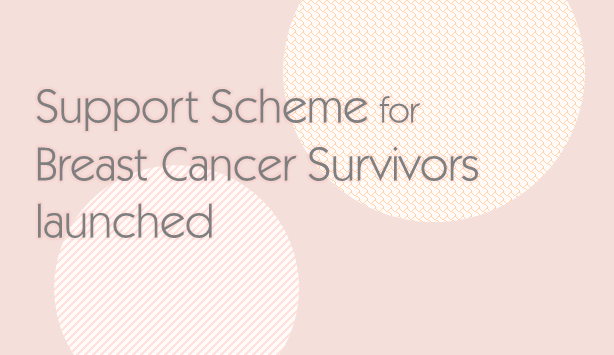HealthXchange will NEVER ask you to transfer money over a call. If in doubt, call the 24/7 ScamShield helpline at 1799, or visit the ScamShield website at www.scamshield.gov.sg.

$2.1 million pilot programme for post-treatment care expected to benefit about 4,000 patients
About 4,000 breast cancer patients are expected to benefit from a new $2.1 million pilot programme that complements conventional medical treatment with emotional and social support for cancer survivors.
The pilot scheme was launched yesterday by Senior Minister of State for Health Amy Khor. It will run for two years under the Temasek Foundation Access (Accessible Cancer Care to Enable Support for Survivors) programme, a partnership between Temasek Foundation and the National Cancer Centre Singapore (NCCS).
It comprises three components: Screenings during patients' visits to NCCS to assess their emotional state by a multi-disciplinary support team, building a community network of medical support services for patients' post-treatment recovery, and a training programme by NCCS to enable such community partners to provide quality care for cancer survivors.
These partners include general practitioners, social workers and rehabilitation therapists who will be trained in and offer services ranging from counselling to physical therapy to palliative care.
"While improvements in screening and treatment have led to improved survival in many early and advanced cancers, cancer survivors often find themselves facing a myriad of physical, psychological and emotional issues," said Dr Khor in a speech at the Singapore General Hospital's Academia Auditorium.
"While healthcare professionals work to diagnose and treat cancer, it is equally important that we put in efforts to help cancer survivors achieve a good quality of life."
As an example, Dr Khor brought up the story of a breast cancer survivor who wanted to be known only as Jenelle.
The 63-year-old recovered from cancer in 2010 but suffered a relapse in April last year. She received chemotherapy and was put on lifetime medication to control the cancer's spread.
But the treatment caused side effects like mood swings, forgetfulness and numbness in her fingers and toes. Ms Jenelle also told her doctor she was depressed and was in October referred to NCCS' supportive care team, who provided her with emotional support.
In a joint statement with Temasek Foundation, NCCS noted that post-treatment care remains a gap in holistic cancer care, as oncologists may not be equipped with the skills and knowledge to identify and manage lesser-known side effects experienced by cancer survivors such as depression, insomnia and mood swings.
Around one in four people in Singapore is expected to develop cancer during his or her lifetime. The number of new cancer cases diagnosed here rose from 57,243 in 2008-2012 to 71,265 in 2013-2017.
Get the Health Buddy App
© 2025 SingHealth Group. All Rights Reserved.













 Get it on Google Play
Get it on Google Play